The linchpin of farmland protection in BC is local government, according to the head of the Agricultural Land Commission.
“The commission can’t really do anything without local government,” Kim Grout, the commission’s CEO told a meeting in Merville last week that kickstarted a seven-week consultation on how the province can better support farmers and farming in the Agricultural Land Reserve.
Grout explained to landowners and other stakeholders that recent changes in regulations governing the ALR, particularly around decision-making and exclusion applications, are part of a shift towards “a broader, collaborative community planning focus.”
One example is the controversial provision under Bill 15, passed this spring, removing the right of individual landowners to file an exclusion application with the land commission. That is now the prerogative of local government.
This was how the existing system worked in practice, Grout explained; exclusion applications always went to local government first, even when landowners filed them.
“Our part of the process isn’t triggered until local government sends it to us,” she said.
Similarly, local government has the right to regulate non-farm uses within the ALR. This can create a situation where activities permitted by the commission may face different restrictions between municipalities. A case in point is cannabis production, which municipalities have a limited right to regulate.
Many speakers at the Merville meeting expressed frustration with the conflicting messages they’re hearing from local governments regarding what the province allows.
Several municipalities, however, are equally confused. Abbotsford, for example, paused a review of bylaws regarding agricultural properties last year pending clarity from the province.
A clinic Wednesday morning at the annual Union of BC Municipalities convention in Vancouver aims to clear up some of the confusion. “Revitalized Legislative Framework for the ALR” runs 45 minutes, and runs concurrently with the clinic “Be Fair: Responding Effectively to Complaints.”

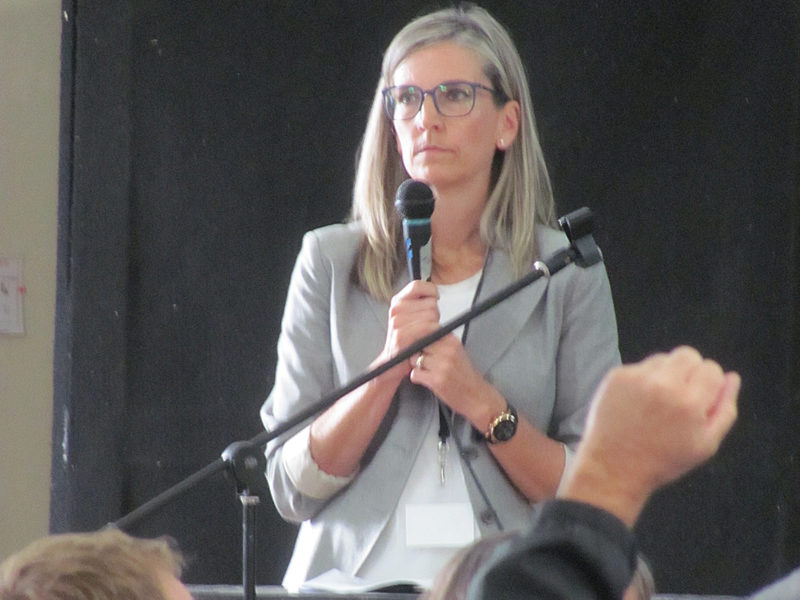

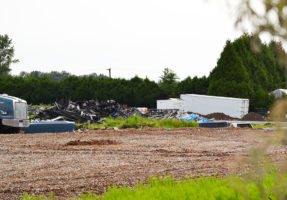
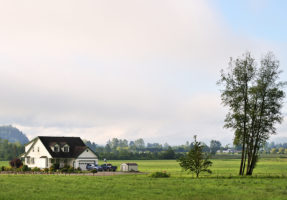





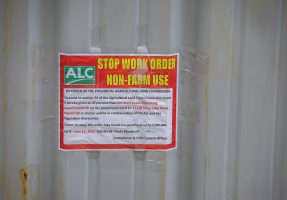


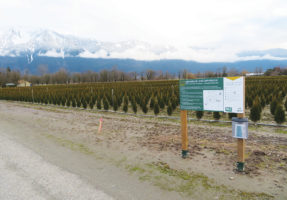
 Raising a stink
Raising a stink